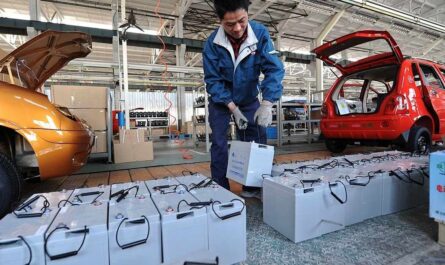The automotive industry is rapidly transitioning towards electrification as nations aim to reduce emissions and dependence on fossil fuels. Electric vehicles (EVs) have emerged as one of the most viable alternatives to traditional internal combustion engine (ICE) vehicles. Though EVs still account for a small percentage of total vehicle sales globally, industry experts expect their market share to grow substantially in the coming years. This article explores various aspects of vehicle electrification including the technological advances, policy support, challenges, and future outlook.
Growing Technological Capabilities
Automakers and technology companies have significantly improved EVs’ driving range, performance, and features over the past decade. New batteries can now power vehicles for over 300 miles on a single charge, addressing one of the key consumer concerns around EVs. Companies like Tesla have demonstrated that EVs can outperform gasoline counterparts in terms of acceleration and torque delivery. Advanced battery packs and powertrain designs have improved an EV’s handling and driving dynamics. Rising computational power is also enabling new autonomous and connectivity features in electric vehicles. Several automakers have announced plans to launch self-driving EVs in the coming years. These technological improvements are making EVs more appealing and practical options for daily commuting and personal mobility needs.
Policy Push for Greener Transportation
Governments around the world have implemented stringent fuel-efficiency and emissions regulations to curb air pollution and reduce dependence on oil imports. Many nations offer direct consumer incentives like tax credits and rebates to promote EV adoption. Other policy tools include non-monetary incentives like access to HOV lanes, exemptions from road tolls and parking fees. Some countries have announced plans to phase out or ban sales of new ICE vehicles within the next decade or two. Such policy push is aimed at accelerating the electrification of transportation. It is prompting automakers to heavily invest in EVs to comply with regulations and capitalize on incentives. Supportive policies will play a crucial role in making EVs affordable and widespread.
Challenges to Overcome
While Vehicle Electrification seems like an attractive proposition environmentally and economically, some challenges remain on the path to mass adoption of EVs. Building out widespread public charging infrastructure still requires sizeable investments. Battery production constraints and high material costs keep vehicle prices elevated for most consumers. Concerns around battery degradation and recycling used batteries also need to be effectively addressed. Range anxiety continues to be a perceived challenge, especially for long-distance drivers. Adapting the electric grid and ensuring sufficient energy generation to handle increased load from EVs is another area that needs attention. Additionally, educating and winning over skeptical consumers would play a big role in the coming years. Automakers and governments need to find innovative ways to overcome these challenges to accelerate the electrification timeline.
Future Outlook and Opportunities
Most analysts predict that EVs will reach cost parity with gasoline vehicles within this decade, after which their sales are projected to skyrocket. Automakers are aiming to launch dozens of new electric models to cater to different vehicle segments. Technologies like solid-state batteries and lithium-sulfur batteries indicating in labs could revolutionize EVs with higher energy densities and lower costs. This would significantly extend driving range and reduce charging times. Widespread adoption of EVs is also paving the way for distributed energy sources like rooftop solar and vehicle-to-grid mechanisms. It can make energy systems cleaner, smarter and more resilient. The electrification of transportation also presents new opportunities for automotive suppliers, battery/electric component makers, EV charger installation companies and more. As renewable energy generation expands globally, electric vehicles will play a defining role in transitioning to sustainable transportation solutions.
While overcoming important challenges, vehicle electrification is gathering pace with rapid technological progress and policy support. EVs are proving their merits over conventional vehicles, driving stronger consumer acceptance. With focused efforts to build out EV infrastructure and batteries, address adoption hurdles, the future of personal mobility is increasingly turning electric. Countries that invest in electrification stand to gain cleaner air, energy security and new industries. The global auto industry’s massive investments in this transition shows that electrification is poised to disrupt transportation as we know it. For sustainable development and climate security, accelerating this shift cannot be more critical today.
*Note:
1. Source: Coherent Market Insights, Public sources, Desk research
2. We have leveraged AI tools to mine information and compile it



